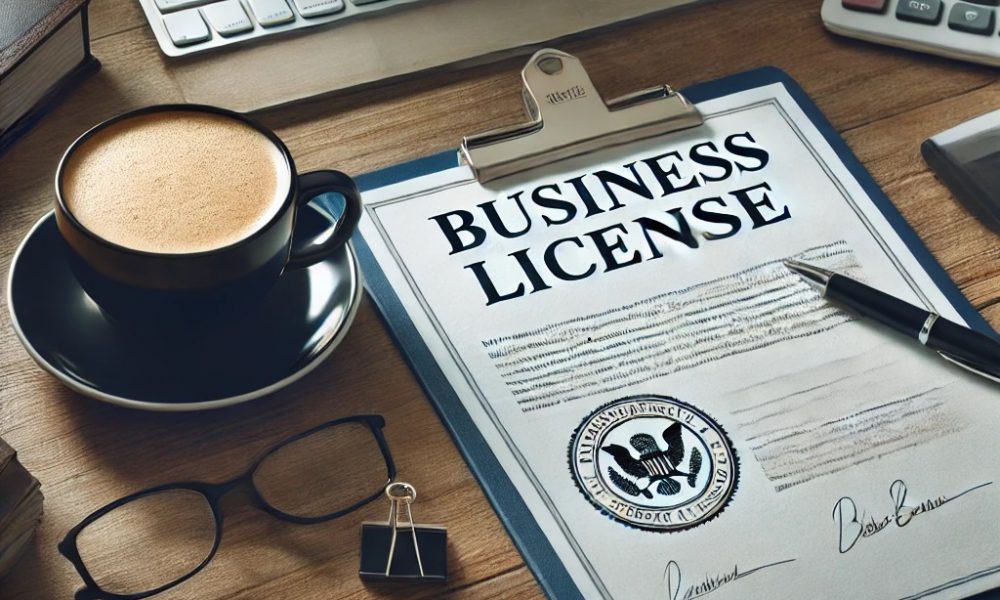
Can You Run Your Business in Multiple Locations on the Same License?

When expanding your business, one of the first questions you might ask is, “Does a business have the same license for multiple locations?” This question is crucial for ensuring compliance and avoiding potential legal issues.
Unfortunately, the answer is not straightforward, as licensing laws can vary significantly from state to state.
Business Licensing Laws Have State Variations
In Virginia, for example, businesses must obtain separate licenses for each location. This means if you run a chain of coffee shops, you will need a distinct license for every single outlet. This regulation ensures that each business meets local zoning, health, and safety standards.

Cytonn / Unsplash / Licensing laws vary based on where you are looking to run your business. So, it is pivotal to consult with your state’s secretary of state for specific details.
On the other hand, some cities like Sturgis, South Dakota, or Tigard, Oregon, allow businesses to operate multiple locations under a single license if they are within the same jurisdiction. These cities have streamlined the process, making it easier for business owners to expand without the hassle of multiple licenses.
Therefore, consulting your state’s secretary of state for specific details is crucial before making any decisions.
The Role of DBA (Doing Business As)
Another factor to consider is the concept of “Doing Business As” or DBA. A DBA allows a business to operate under a different name than the one registered. This can be particularly useful if you plan to open multiple locations under varied brand names. While a DBA doesn’t replace the need for a business license, it allows flexibility in branding across different markets.
For instance, if your business is registered as “Smith Enterprises” but you want to open a coffee shop called “Morning Brews” and a bakery called “Daily Bread,” you would file a DBA for each new name. This process ensures that each business name is legally recognized, and you can operate multiple entities under the same ownership umbrella.
Trademarks and Their Importance
A trademark legally protects your brand name, logo, or slogan from being used by others. This is particularly important if your business is expanding to new areas, as it prevents competitors from using similar names that could confuse customers.
Registering a trademark with the United States Patent and Trademark Office (USPTO) provides nationwide protection. This means that no matter how many locations you open, your brand remains protected.

Fauxels / Pexels / Apart from DBAs, trademarks play a vital role in protecting your business identity across multiple locations.
However, remember that a trademark doesn’t replace the need for business licenses. It merely safeguards your brand identity.
Consulting Legal Experts is Crucial
Given the complexity of business licensing, it is best to consult with legal experts or business consultants. They can help navigate the specific requirements of each state and ensure that your business complies with all local regulations. For instance, a legal expert can guide you through the process of obtaining necessary licenses, registering DBAs, and securing trademarks.
Legal experts can also provide valuable insights into the nuances of operating in different states. For example, they might highlight that while some states require separate licenses for each location, others might offer a master license that covers multiple locations within the state. Understanding these distinctions can save you time and money in the long run.
So, does a business have the same license for multiple locations? The answer depends on where you operate. Licensing laws vary by state. Hence, it is essential to understand these regulations to ensure compliance. Plus, DBAs and trademarks play crucial roles in managing and protecting your business identity as you expand.
More in Business
-
`
What’s Changing for Student Loans After Trump’s New Spending Bill?
The passing of President Donald Trump’s latest spending bill is shaking up more than just tax brackets and business deductions—it’s poised...
July 16, 2025 -
`
Why Big Tech Is Divided on the Future of Artificial General Intelligence
Fifteen years ago, the founders of DeepMind—Sir Demis Hassabis, Mustafa Suleyman, and Shane Legg—set a bold goal: “Build the world’s first...
July 1, 2025 -
`
Planning a Wedding? These Money-Saving Tips Actually Work
Weddings are meant to be memorable, not financially draining. But for many couples, the cost of tying the knot often brings...
June 24, 2025 -
`
Did MrBeast Really Borrow Money From His Mother for His Wedding?
YouTube star Jimmy Donaldson, widely known as MrBeast, sparked surprise when he shared a personal update on X. Despite leading the...
June 17, 2025 -
`
How Smart Technology Is Changing the Way We Travel
Technology has reshaped nearly every part of modern life, and travel is no exception. From how we plan trips to how...
June 12, 2025 -
`
Why Some Tech CEOs Are Replacing Themselves With AI Avatars
In a move that signals a shift in how corporate communication is handled, major tech CEOs are beginning to hand the...
June 3, 2025 -
`
Is Innovation Dead in American Pop Culture?
Has something changed in the way we engage with American pop culture? Scroll through your favorite streaming service, tune into the...
May 27, 2025 -
`
7 Key Steps to Start a Profitable Digital Products Business
Starting a digital products business offers an exciting opportunity to turn your skills and knowledge into a revenue-generating venture. Whether you’re...
May 20, 2025 -
`
Mercedes-Benz Introduces the Vision V – An Ultra-Luxury Electric Limousine
The introduction of Mercedes-Benz’s Vision V concept represents a significant advancement in the field of electric vehicles. This electric minivan is...
May 13, 2025














You must be logged in to post a comment Login